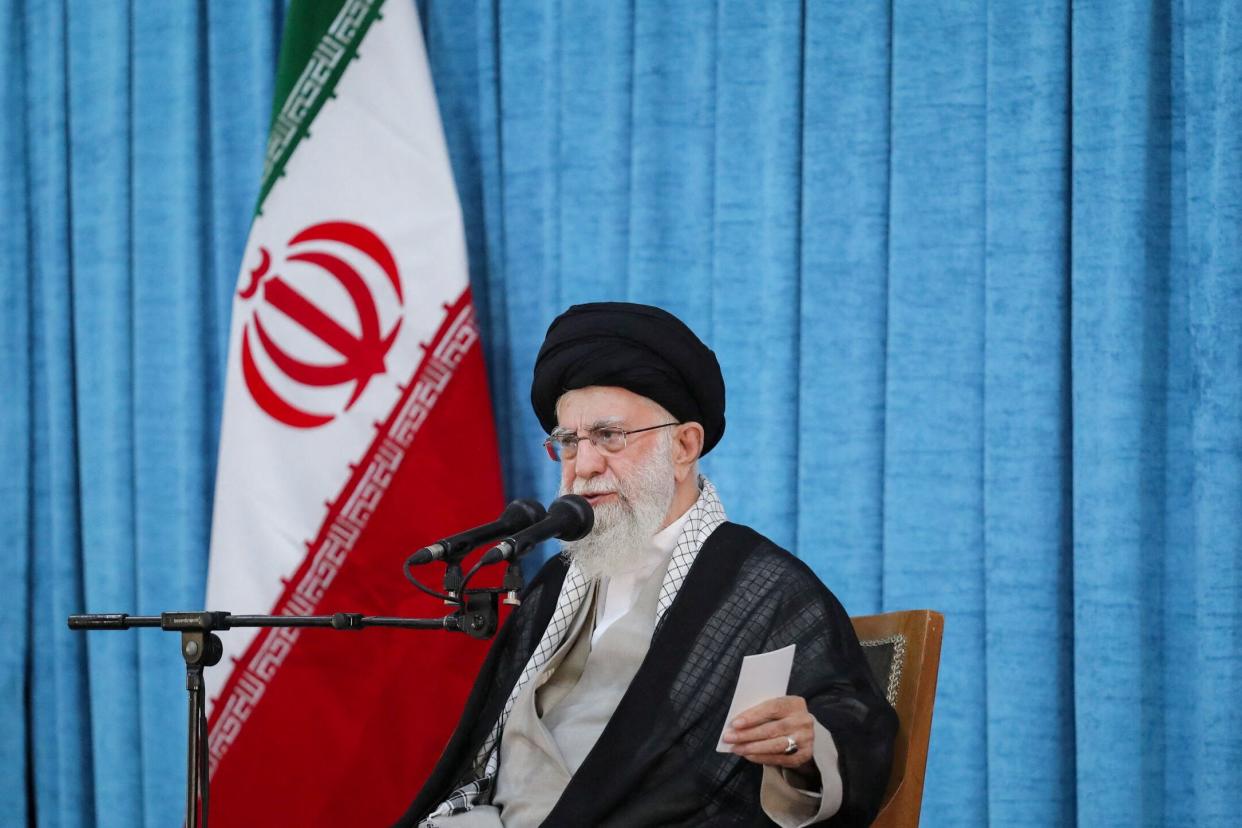Iran's nuclear program may be expanding dramatically

Insights from Middle East Monitor, The Bulletin of Atomic Scientists, and Atlantic Council
The News
Iran could significantly expand its nuclear capabilities in the near future, The Washington Post reported. New construction activity has been recorded at one of its most secretive facilities, which could triple the site’s production of enriched uranium — enough for the country to accumulate several bombs’ worth of nuclear fuel every month, the outlet reported.
International watchdogs have been largely blocked from investigating further: Last week, the International Atomic Energy Agency board passed a resolution calling on Iran to cooperate with the watchdog and reverse its ban on inspectors.
Iran insists its nuclear ambitions are peaceful, but high-ranking officials have recently hinted the country would build nuclear weapons if threatened by Israel.
SIGNALS
The West isn’t calling Iran’s bluff
Tehran is effectively weaponizing the ambiguity around whether it has reached the threshold for nuclear weapons as “both a deterrent and a bargaining chip” that could strengthen the regime’s hand should it ever return to sit at a negotiating table, an expert told The Washington Post. Iran may, of course, not actually cross the threshold, but the relatively muted response to IAEA warnings may have boosted Tehran’s confidence and the West could take a stronger position, the managing director of The Washington Institute argued. US President Joe Biden might be trying to avoid the issue until after November, but he risks having to explain to Americans “how Iran came to build a bomb on [his] watch,” The Wall Street Journal wrote in an editorial.
Changing public opinion in Iran could sway nuclear policy
An overwhelming majority of Iranians now support nuclear weapons development, a change in sentiment potentially bolstered by recent military confrontations with Israel that could put pressure on the country’s leaders to reassess their anti-nuclear official policy, the Bulletin of the Atomic Scientists said. Iran’s history of invasions and strategic isolation means its national psyche is deeply concerned with security, and Iranians believe in the need for a strong deterrent, a columnist wrote in Middle East Monitor.
Iranian regime uses nuclear ‘double-speak’
Supreme Leader Ayatollah Ali Khamenei’s fatwa prohibiting nuclear arms is essentially a farce, a kind of “double-speak” that allows scientists to develop the technology for weapons in the shadows, an Iranian journalist argued in the Atlantic Council. The only mention of the “fatwa” on Khamenei’s official website is in a 2015 speech, which notably skirted the subject of the “production and storage” of nuclear arms, and it is possible the Ayatollah will revoke the fatwa if it is expedient to him.

